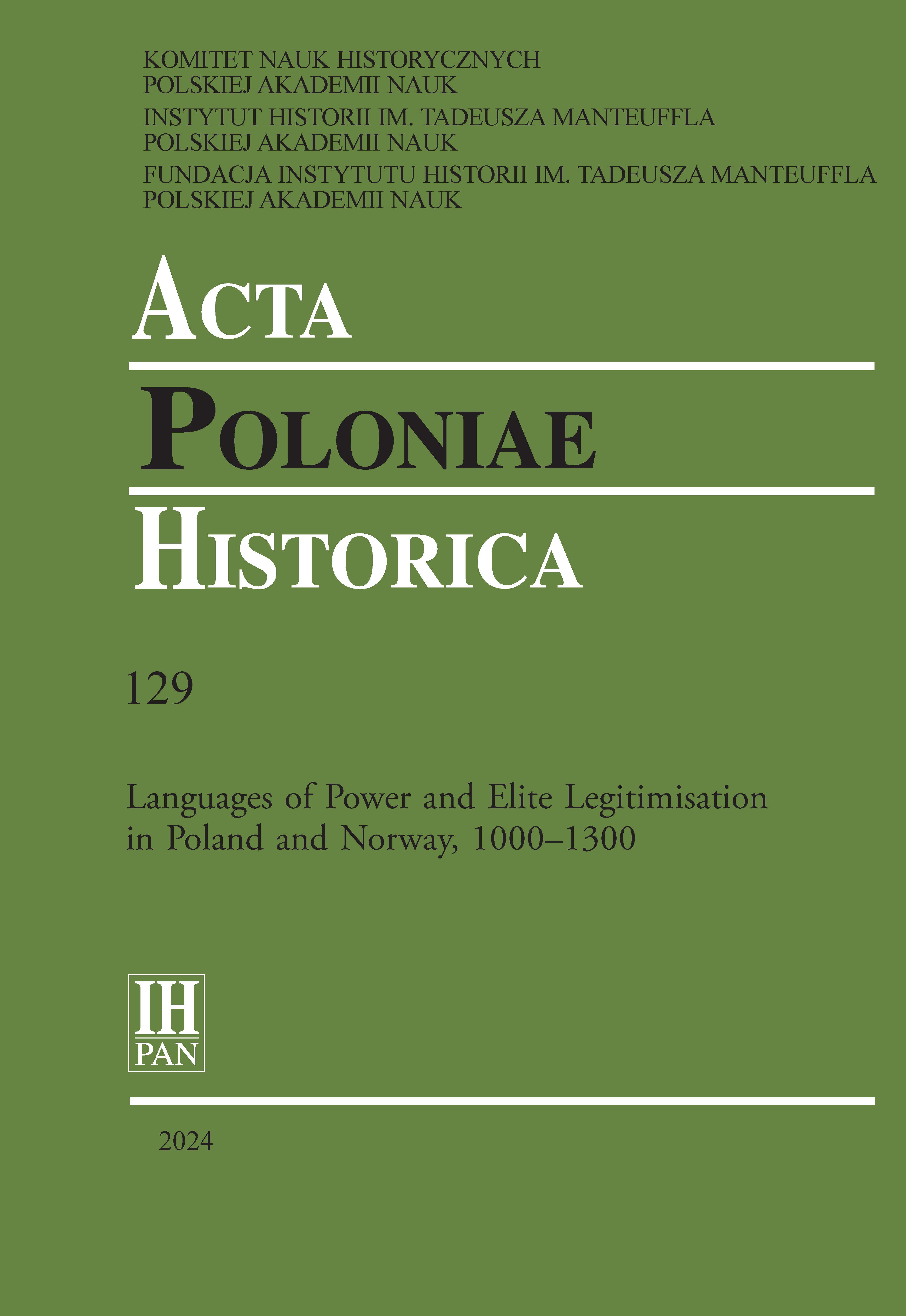Holy Bishops, Papal Canonisation and the Legitimisation of Power in Thirteenth-Century Norway and Poland: The Cases of Eystein Erlendsson of Nidaros and Stanislaus of Kraków
DOI:
https://doi.org/10.12775/APH.2024.129.05Schlagworte
saints, canonisation, bishops, rulers, Thomas of Canterbury (Thomas Becket)Abstract
This article explores two mid-thirteenth-century attempts to canonise holy bishops from the so-called peripheries of Latin Christendom. That two ecclesiastical centres – the metropolitan see of the Nidaros Church Province and the episcopal see of Kraków – both sought to attain papal acknowledgement of the veneration of a holy episcopal predecessor and did so in the same historical period, is understood to be a response to a general trend in the Latin Church. More specifically, we interpret these attempts in light of the paradigm of the holy episcopal champion fighting for the freedom of the Church, a recalibration of the idea of the holy bishop that emerged as a result of the canonisation of Thomas of Canterbury in 1173, and which was promoted throughout the Latin Church from that point onward. Due to the popularity of the new type of the holy bishop, the episcopal champion became a form of symbolic capital that conferred greater prestige onto the saints, their cult centres, and the guardians of those cult centres, i.e., the clergy. Through a comparative study of two unconnected cases, we see how peripheral agents could actively adopt central trends to strengthen their own legitimisation of power vis-à-vis both rulers and other ecclesiastical institutions.
Literaturhinweise
Alt Daniel, Sanctus Episcopus. Das Bischofsideal von früh- und hochmittelalterlichen Bischofsviten im Spannungsfeld von Anspruch und Wirklichkeit (Herne, 2012).
Bjørlykke Kristin, Øystein Ekroll, Birgitta Syrstad Gran, and Marianne Herman (eds), Eystein Erlendsson – Erkebiskop, politiker og kirkebygger (Trondheim, 2012).
Coviaux Stéphane, ‘Les saints évêques de Scandinavie du Xe au XIIe siècle’, in Corinne Péneau (ed.), Itinéraries du savoir de l’Italie à la Scandinavie (Xe–XVIe siècle) – Études offertes à Élisabeth Mornet (Paris, 2009), 51–69.
Fryde Natalie and Dirk Reitz (eds), Bischofsmord im Mittelalter – Murder of Bishops (Göttingen, 2003).
Haarländer Stephanie, Vitae episcoporum. Eine Quellengattung zwischen Hagiographie und Historiographie, untersucht an Lebensbeschreibungen von Bischöfen des Regnum Teutonicum im Zeitalter der Ottonen und Salier (Stuttgart, 2000).
Krafft Otfried, Papsturkunde und Heiligsprechung. Die päpstlichen Kanonisationen vom Mittelalter bis zur Reformation. Ein Handbuch (Köln–Weimar–Wien, 2005).
Kuzmová Stanislava, Preaching Saint Stanislaus. Medieval Sermons on Saint Stanislaus of Cracow, His Image and Cult (Warsaw, 2013).
Maciejewski Jacek, Episkopat Polski doby dzielnicowej, 1180–1320 (Kraków–Bydgoszcz, 2003).
Øvergård Beistad Heidi Anett, ‘Pope, Province, and Power’, Scandinavian Journal of History, xlii, 3 (2017), 299–328.
Prudlo Donald, Certain Sainthood. Canonization and the Origins of Papal Infallibility in the Medieval Church (Ithaca, NY, 2016).
Skwierczyński Krzysztof, Recepcja idei gregoriańskich w Polsce do początku XIII wieku (Toruń, 2016).
Slocum Kay Brainerd, The Cult of Thomas Becket. History and Historiography through Eight Centuries (London–New York, 2019).
Starnawska Maria, Świętych życie po życiu. Relikwie w kulturze religijnej na ziemiach polskich w średniowieczu (Warszawa–Siedlce, 2008).
Vauchez André, Sainthood in the Later Middle Ages (Cambridge, 1997).
Weinstein Donald and Rudolph M. Bell, Saints & Society. Christendom, 1000–1700 (Chicago–London, 1982).
Downloads
Veröffentlicht
Zitationsvorschlag
Ausgabe
Rubrik
Lizenz
Title, logo and layout of journal are reserved trademarks of APH.Stats
Number of views and downloads: 554
Number of citations: 0



